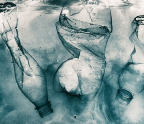
It took Dr Robert Enright 36 years to get his research proposal to test forgiveness therapy among prisoners in a maximum security prison approved, but by 2020, its time had come.
“Once we finally got it in after being rejected for grants at least five times, this study in maximum security prison has now been shown to be the strongest set of data for emotional healing ever published in the correctional context,”he says.
The very idea of helping prisoners forgive childhood abuse, rather than seek forgiveness for their crimes, was so abhorrent to some that Enright, recognized as a pioneer in the study of forgiveness who has twice been nominated for a Nobel Peace Prize, says he was originally seen as a “total embarrassment” to the granting agency.
“What we have to deal with is what I call the paradox of forgiveness: we have to get people to accept that no matter how outrageous forgiveness seems, it’s not outrageous at all,” he says. For University of Wisconsin-Madison professor Enright, forgiveness is a moral virtue that must ultimately involve extending mercy to the offender as an undeserved gift. It’s a challenging definition that has its critics.
“A lot of times we see that people who are most resistant to forgiveness, clinically, are actually the most hurt. They’ve been so hurt that forgiveness is seen almost as an abomination,”he says.
“So the resentment builds up, the hatred builds up, and therefore the anxiety and depression can build up. We have found that when you have been gravely hurt by others, forgiveness really is the treatment of choice.”
Since the first rejection of Enright’s prison proposal, the science of






